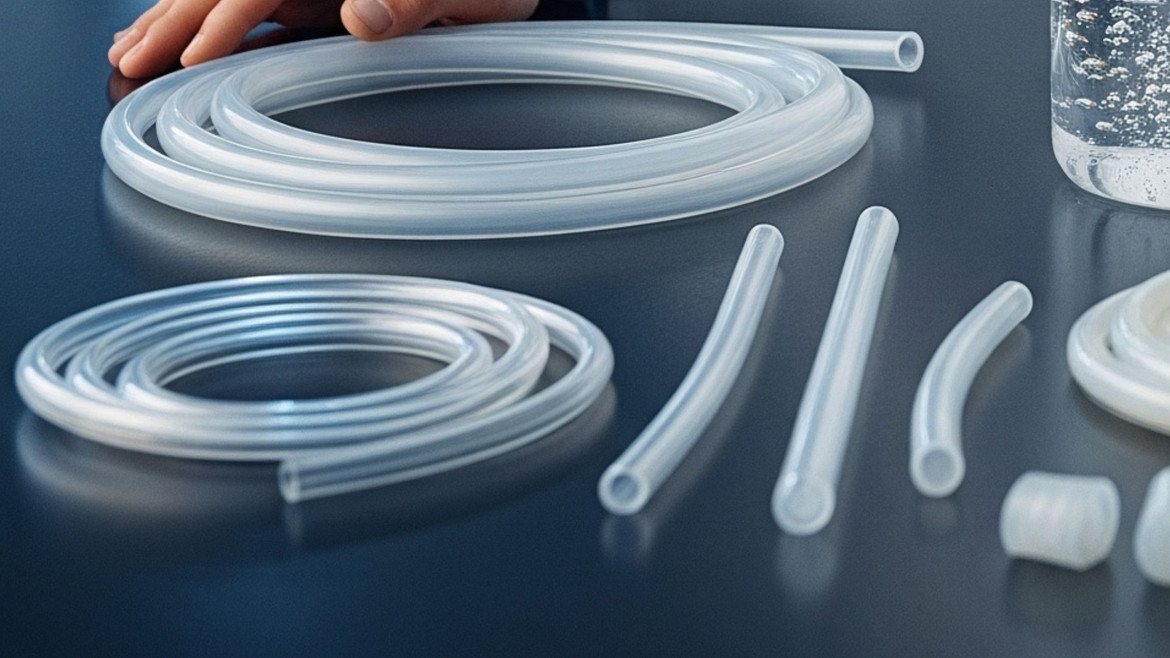When you’re designing an advanced automotive, aerospace, or industrial system, material selection is paramount. Silicone is renowned for its incredible flexibility and temperature resistance, but a crucial question for any engineer is: how does it stand up to chemicals and fluids? At Flex Technologies, we know that understanding the nuances of chemical compatibility is key to engineering a durable and reliable application. While silicone is highly resistant, it's not universally inert. This guide will help you understand its strengths and limitations. Here are six key points to consider regarding the chemical resistance of silicone. Shop today.
![]()
General Inertness and Biocompatibility
At its core, silicone is a very stable and inert polymer. This means it generally does not react with most chemicals, making it an ideal material for sensitive applications. This inherent inertness is why medical-grade silicone tubing is so widely used for biocompatible devices and why food-grade silicone is a top choice for food and beverage processing. It won’t impart any taste or odor and doesn’t support bacterial growth, making it a clean and safe choice.
![]()
Excellent Resistance to Water and Coolants
One of the most common applications for silicone hoses is in cooling systems, and for good reason. Silicone offers excellent resistance to water, steam, and common glycol-based coolants like those found in automotive radiators and industrial heat exchangers. This is especially true for a high-temperature silicone hose, which can handle the transfer of these fluids at extreme temperatures without degrading, hardening, or becoming brittle over time, unlike rubber alternatives.
![]()
Moderate Resistance to Oils and Some Solvents
This is where material selection becomes critical. Standard silicone hoses offer moderate resistance to many non-polar hydrocarbon fluids, such as motor oil and hydraulic fluids. However, prolonged exposure, especially at high temperatures, can cause the silicone to swell, soften, and lose its mechanical properties. For applications involving constant contact with aggressive oils or fuels, specialized silicone hoses and tubing with a fluorosilicone liner are the superior choice, as they are specifically designed for this purpose.
![]()
Poor Resistance to Aggressive Fluids
It is equally important to know silicone’s weaknesses. Silicone does not stand up well to certain aggressive chemical classes. Concentrated acids (like sulfuric acid), strong alkaline solutions, and certain hydrocarbon solvents (like gasoline and brake fluid) will rapidly break down the silicone polymer. Similarly, abrasive slurries can physically wear away the inner lining of standard silotine tubing, leading to premature failure.
![]()
The Critical Role of Temperature
A fluid’s compatibility with silicone can change dramatically with temperature. A chemical that has little effect on silicone at room temperature may become much more aggressive as the temperature rises. When designing with a high-temperature silicone hose, you must consider the chemical resistance at the peak operating temperature of your application. This ensures that the hose maintains its integrity throughout the entire operational cycle.
![]()
The Solution: Customization and Specialization
Navigating these variables is why partnering with an expert manufacturer is so important. At Flex Technologies, we create custom silicone hoses tailored to your specific needs. If your application involves challenging fluids, we can engineer specialized silicone hoses and tubing with custom liners, multiple plies of reinforcement, or specific material formulations like fluorosilicone. This ensures you get a product that is perfectly matched to its environment.
![]()
GET STARTED TODAY
Choosing the right hose material is a critical decision that impacts the longevity, safety, and performance of your entire system. While silicone is an incredibly versatile and resistant material, its compatibility varies based on the chemical, its concentration, and the operating temperature. For expert guidance in selecting or designing the perfect solution, from standard parts to fully custom silicone hoses, contact the engineering team at Flex Technologies. We are here to help you build with confidence.
 Default Currency
Default Currency
 Mexican Pesos
Mexican Pesos
 Canadian Dollar
Canadian Dollar


